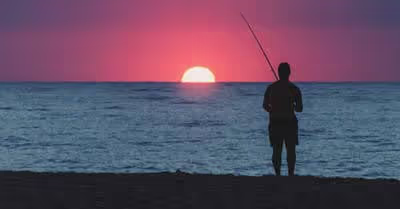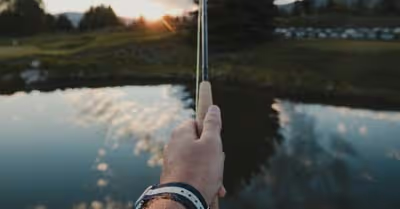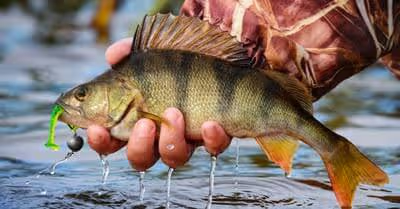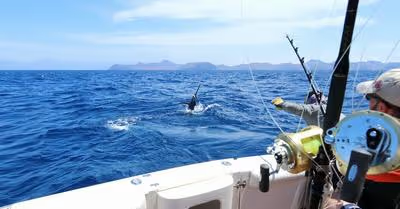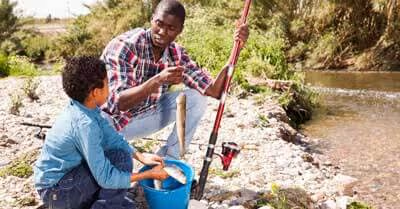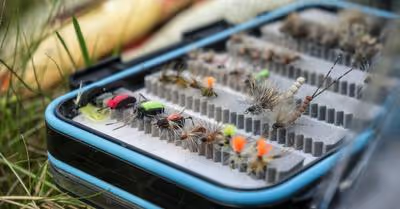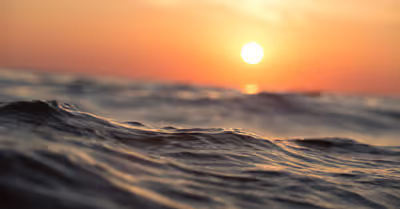Table of Contents
It is true that most fish species become lethargic and tend to feed less during winter. But this doesn’t mean that you can’t fish in the winter. Believe it or not, winter is a particularly great time to fish given that most fish species tend to group up, which means there will be more fish on your lure. So if you’ve been wondering if you can fish during winter, the straightforward answer is yes, you can. All you have to do is prepare yourself, do some proper research, arm yourself with the right tactics and you can make winter fishing very memorable.
If you’ve been planning to go out there and have some great catch when it’s very cold, here is a great place to start.
Stay Safe
The first and most important thing to do when fishing during winter or any other time of the year is to prioritize your safety. It may be very careless of you not to take your safety into account when fishing in winter. According to the U.S. Coast Guard, winter months, especially December, January, and February are known to have more boating and fishing fatalities. So it’s very crucial that you play it safe! Here is what you can do.
Whether you’re a newbie or a very experienced pro, you should never fish alone during winter. Keep in mind that the winds are very brutal, the lines will be icy, and you can expect to have frozen fingers. But imagine what will happen to you if you accidentally fall overboard (it often happens). The ice-cold water may shock your body system, your muscles will twinge, and hypothermia may be the next thing. If you’re alone, you may not have the energy to pull yourself back onto the boat and this may spell doom. Again, keep in mind that not many anglers are out there during winter and there may be no one to help you if you need an emergency. So before even thinking about going out there during the cold season, make sure that you’re in the company of a fellow angler or friend and you’ll thank us later.
You should also leave your fishing plan and itinerary with your spouse, friend, neighbor or relative. It’s important that they check in with you on a predetermined schedule so that they can call for help in case they do not hear from you. Remember, your safety and life is more important than fishing and so you shouldn’t take any chances. That being said, you should never change your fishing plan or route without informing them.
Another important part of your safety is what you wear. You should never wear cotton as it will freeze you in your tracks when it gets wet. It’s vital that you keep warm by wearing layers of synthetic or wool fabrics. You should also invest in hand and foot warmers to ensure that you stay warm. Make sure that you all have life jackets not in the boat but over your coats. A life jacket won’t be of much help if you’re in the water and it’s in the boat. You can also invest in a rope with loops to help you get back on board if you accidentally fall overboard.
Last but not least, you should pack plenty of high-energy foods such as granola bars. It’s generally advisable to choose the types of food that you can consume with your gloves on. You shouldn’t forget to pack a hot thermos of coffee or a hot soup. These are some food items that will make your winter fishing trip quite enjoyable.
Know What You Want to Catch and how they Behave During Winter
Before you go out there during winter, it’s of great importance to do some research and understand certain fish mechanisms. This will help you determine the type of fish species to target during winter and will also inform the tactics and strategies that will offer you more success.
The first and most important thing is to note that fish are cold-blooded. This means that their habits and way of life will change depending on various factors such as water temperature, weather, and air pressure. Generally speaking, fish tend to be more lethargic during winter. In other words, they tend to be less active during winter and will retrieve to the bottom of the water. They’ll slow down their metabolism, eat less and wait for the cold months to pass before they become active again.
Although they don’t curl up with a good book around the fire or with a cup of hot coffee like we do to escape the freezing cold, fish tend to shoal or school up at the bottom of the lake, stream or river where it tends to be warmer during winter. They’ll also find little pockets away from fast-moving water to help them conserve energy. This will, of course, help you when choosing where and how to fish. For example, you can choose to go deeper during winter as most fish tend to stay at the bottom.
Some of the fish species to target during winter include; crappie, bluegill, perch, walleye, northern pike, trout, and channel catfish.
Change Where and When You Fish
As we’ve noted above, fish tend to retrieve to the bottom during cold months. So if you’re used to shallow fishing in spring, summer, and fall, it’s advisable to change your tactics and go deeper during winter. Fish also tend to stay in little pockets away from fast-moving waters. For this reason, you can target underwater channels and steep drop-offs. They also love staying close together during winter so if you get a bite in a particular spot, chances are there will be more fish just nearby.
You can also target warm waters such as river branches and ponds. You can target areas where there’s a bit of sun even in winter. If you’re fishing in canals or rivers, you might want to move closer to high urban density areas.
While we generally angle in the morning and late in the afternoon during summer, you can target between 11 a.m. and 4 p.m. during cold months. This is because the air temperature is warmest at these periods and there will be a few placed rays that might be just enough to make the fish a little more active. You should also consider fishing with the wind at your back during winter since it’s a lot easier to cast without being affected by the brutal winter winds.
Bring the Right Baits – Live and Brighter Baits are Always Better in Winter
Even though we all have our preferences when it comes to baits, it’s always necessary to bring the right baits. If you’re planning to winter fish, the most critical thing to remember is how baits move. Keep in mind that it is winter and even some of the most active and aggressive fish will be slower than when the water is warm.
The most important thing to do is to choose baits that are closest to live baits even if they’re not live. Don’t expect that the fish will bite just about anything. In fact, they won’t even attempt biting some icy metal or rubber! This is because rubber and metal always appear stiff when the water is cold and will appear like dead weight to the fish, which will essentially turn them off. If you can’t find live baits, a great option for winter fishing is minnows. This is because they’ll have a natural motion and you won’t have to jig or drag them that much. You should also ensure that the baits are as slow as possible for even the slowest of fish.
If you have to use artificial baits, go for feathery baits that will naturally move even in cold water. You should also go with brighter colors to attract fish. The fact that fish tend to be less active during winter should inform your decision to go with smaller baits. This is because they generally eat less and so will be turned off if the baits are more than they can bite.
Bring the Right Gear
We can’t emphasize more on the importance of bringing the right gear for winter fishing. Keep in mind that the cold weather will stiffen up your gear and it may not work properly if it’s not well oiled and well-maintained. Things may get more difficult if it’s freezing cold and your line may be prone to snapping. This is exactly why you should go with a gear that you can fully trust not to let you down when the weather is adverse.
Conclusion
It’s in human nature to retrieve indoors when the pangs of the cold winter season take a toll. But instead of withdrawing into your home and curling up watching the telly, reading a novel or chilling with a hot cup of coffee, winter can be an ideal time to prepare your fishing gear and catch some great fish!
In addition to prioritizing your safety, you should be well informed on how your targeted fish behave in winter and choose the right place and time to fish. With the right gears and right baits, winter fishing could be more enjoyable and perhaps memorable than the overcrowded summer fishing trips!
Recent Articles



